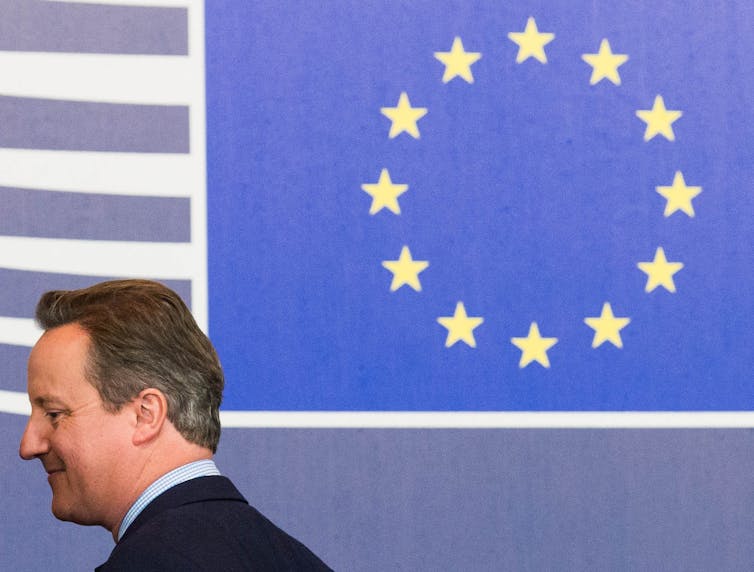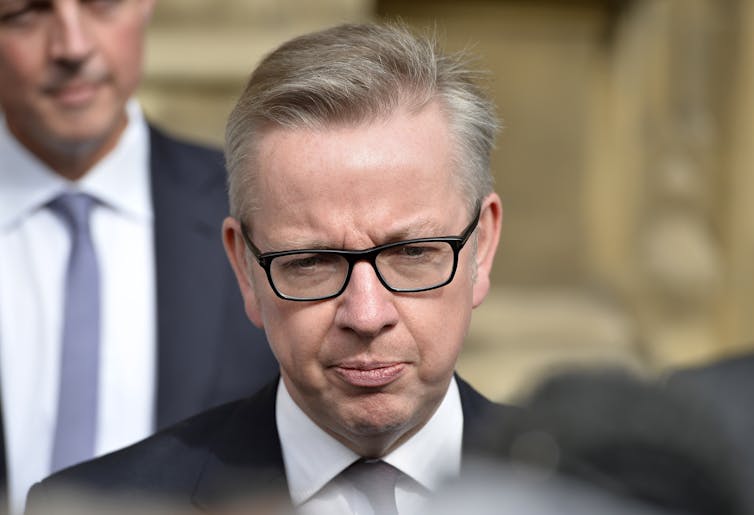There has been much speculation about Mark Carney’s future as governor of the Bank of England, following an unprecedented series of attacks by leading proponents of the UK’s exit from the EU. There was even speculation about the state of his relations with the prime minister.
Yet Carney has now confirmed he will stay in position until the summer of 2019. The impact on markets and on the economy is hard to gauge, but on balance it looks positive.
Carney and the Bank made some strong statements during the referendum campaign, but those statements were in line with a very wide consensus among economists. The wilder claims, especially about the immediate short-term impact of Brexit, clearly came from the then Prime Minister David Cameron, his Chancellor George Osborne and other government ministers.

Policy briefing
Since the referendum, the Bank has acted with commendable speed in heading off the dire short-term effects that were predicted and, in some cases, might indeed have materialised. The Brexiteers should be grateful for that.
However, if we consider the Bank’s performance since the crisis in 2008, it is striking that, like central banks elsewhere, it is still pursuing policies similar to those introduced in 2009 as the world wrestled free of the financial crisis. That has been a recipe of interest rate cuts and quantitative easing (which pushes long-term interest rates down and asset prices up), and low interest rates don’t do much for savers or pension funds. A serious observer has to ask why such policies are still being pursued.
The answer is that, while some limited fiscal expansion was undertaken in some countries (including the UK) in 2009 and 2010, governments subsequently turned to “fiscal consolidation”, in other words a contraction designed to cut budget deficits and debt. That left monetary policy as the only instrument operating against deep and prolonged recession.

The arguments for fiscal consolidation included the claim that when the ratio of public debt to national income rises above 90% then economic growth collapses; the claim that fiscal contractions can be or are actually expansionary; and the claim that the multiplier effect of fiscal expansion is low or even negative. These claims have all been shown, by academic economists and research economists at the IMF, to be erroneous both in general and in the context of the post-financial crisis recession. A review of this debunking is available here.
The promotion of fiscal consolidation by politicians therefore suggests that their choices were and are essentially political, designed to bring about a sharp and lasting reduction in the size of the public sector and the social safety net.
Cause and effect
Whatever you think about that, it is inescapable that a byproduct of fiscal consolidation was that monetary policy had to be even more expansionary, with repeated quantitative easing and low interest rates. Part of Carney’s role on joining the Bank in 2013 was to introduce “forward guidance” – that is, indications that interest rates will not be raised until some date or some change in the economy – as a further method of monetary stimulus. However, unemployment fell more rapidly than expected and the guidance (which had in any case not been very precise) had to be changed. It is far from obvious that it made any serious contribution in the UK’s case.
In this context, it ill-behoves former foreign secretary William Hague to criticise central banks for low interest rates, in an article which makes no mention of fiscal policy. And politicians such as Michael Gove should address the arguments of the BoE and the reasons for its policies instead of complaining that the governor is above criticism. It’s worth remembering that Gove’s reply to economists who disagreed with Leave campaign claims about the post-Brexit landscape was not to dispute their arguments, but to compare them to Nazi scientists. It is also worth noting that some of us academics have never found it difficult to criticise the Bank or its governor when there are reasonable grounds to do so.

Against this background, what can Carney do in his remaining two and a half years? His continuation as governor will help to reduce the uncertainty about the direction of government policy in the context of the Brexit negotiations, which is good. On the monetary side, there is just not much more that the Bank can do: quantitative easing must be close to its effective limit, interest rates could be made slightly negative but that’s all, and forward guidance is unlikely to achieve much.
On the fiscal side, which is the real problem in the UK, Carney is not known to have ever pressed Osborne for more expansion or even less contraction, but more recently he has indicated that monetary policy alone cannot do everything that is required. It is to be hoped that he takes that argument further, although he will not want to follow his predecessor in speaking out in public on fiscal matters. It is a fine balance to achieve.
Whether Carney’s extra year to mid-2019 (and not 2021) is better for the UK depends, of course, on who replaces him, which we cannot yet know. One can imagine a less competent and less independent governor, but also one who was well-informed, shrewd and forthright. With luck, by 2019 if not by 2018, the people who appoint Carney’s replacement will have learned something about how the world works and will have repudiated the un-truths and post-truths which have informed recent attacks on the Bank. When they consider the appropriate criteria for the appointment, they should also understand that those criteria include a willingness to stand up to the politicians.

